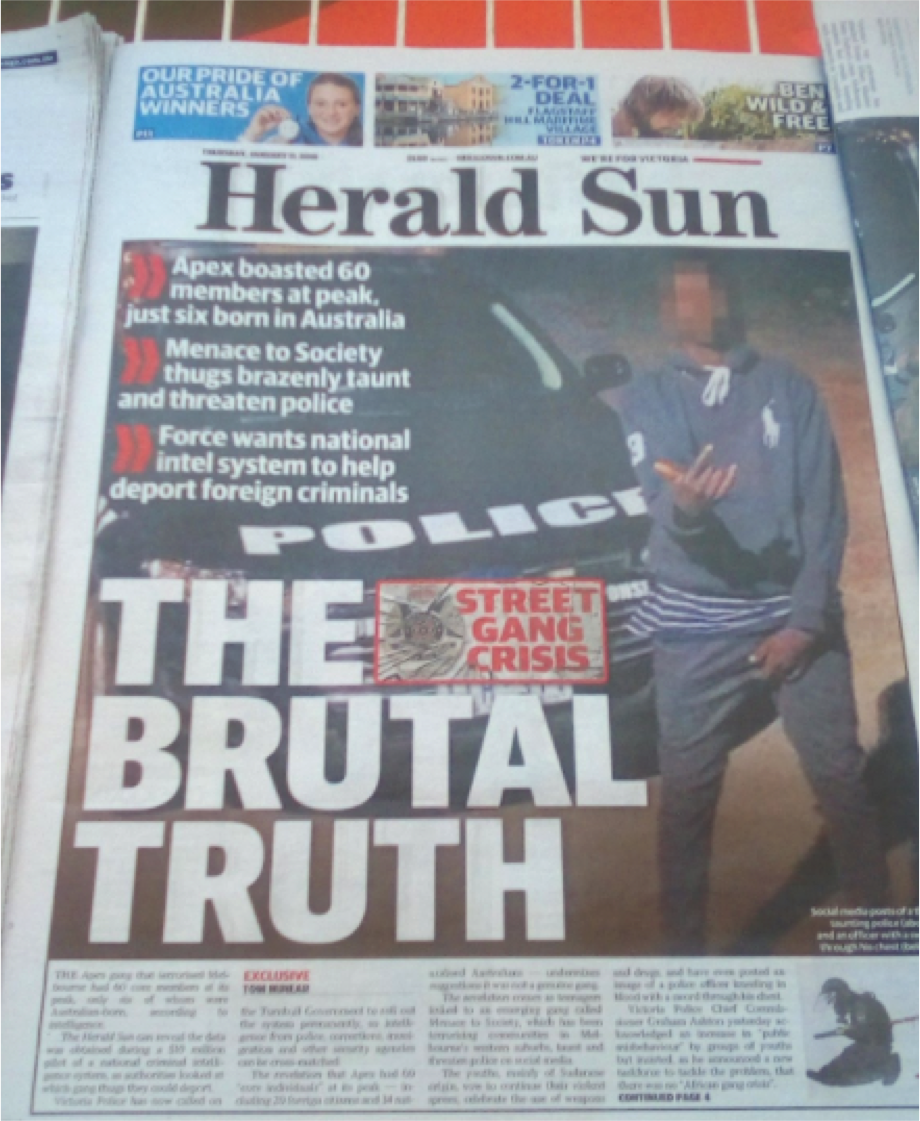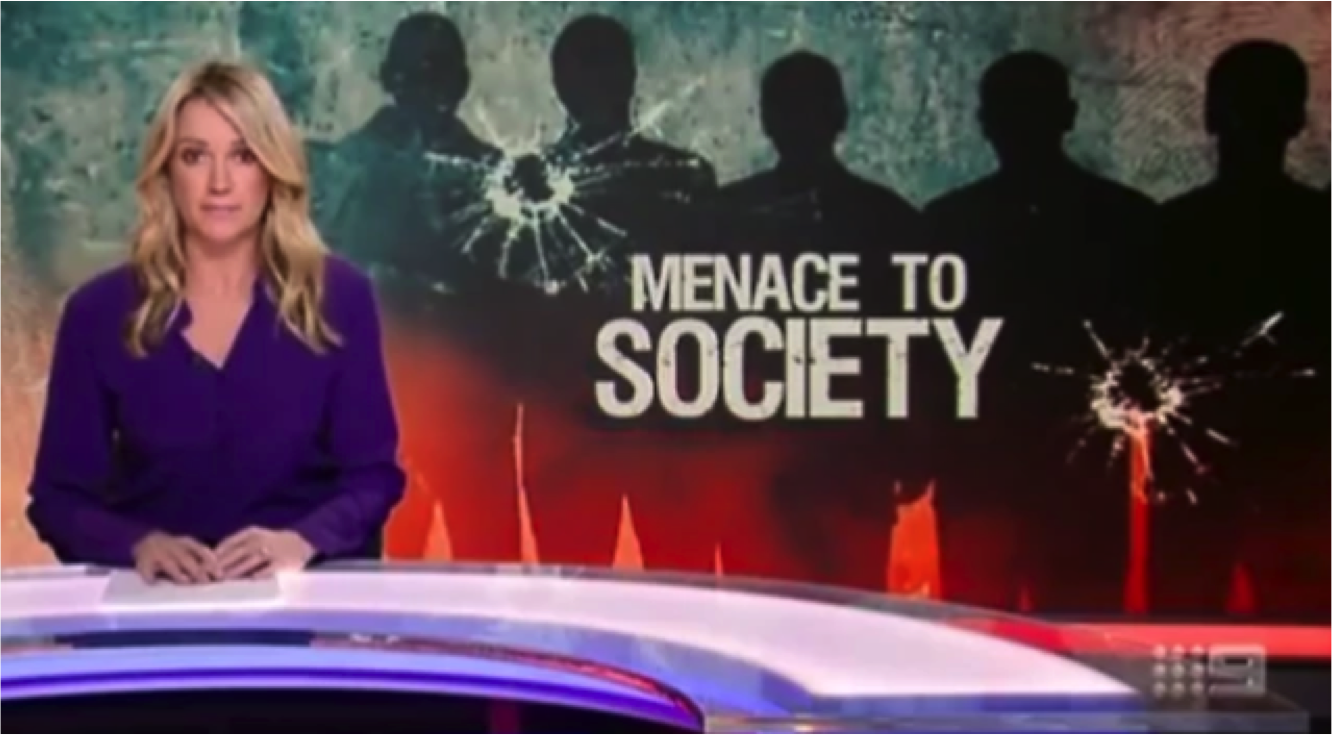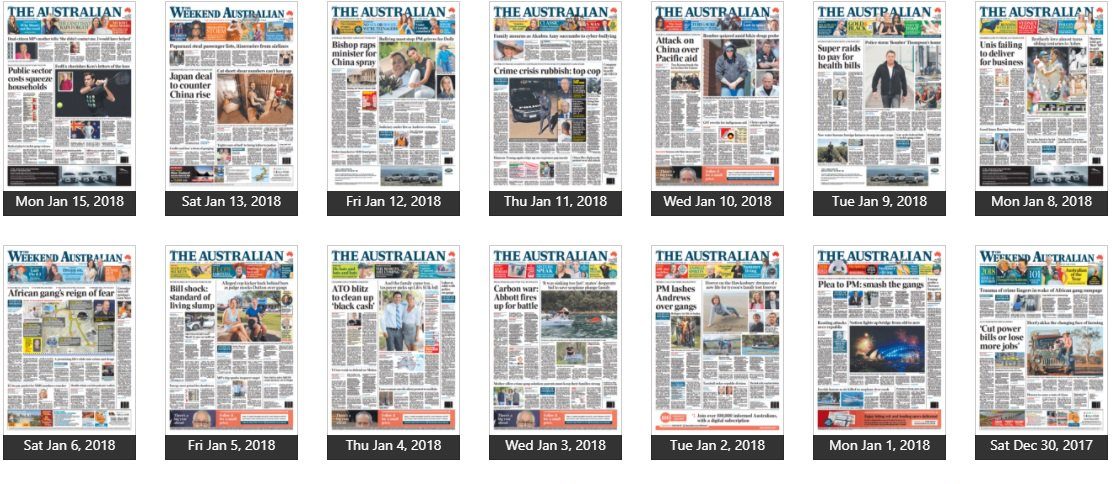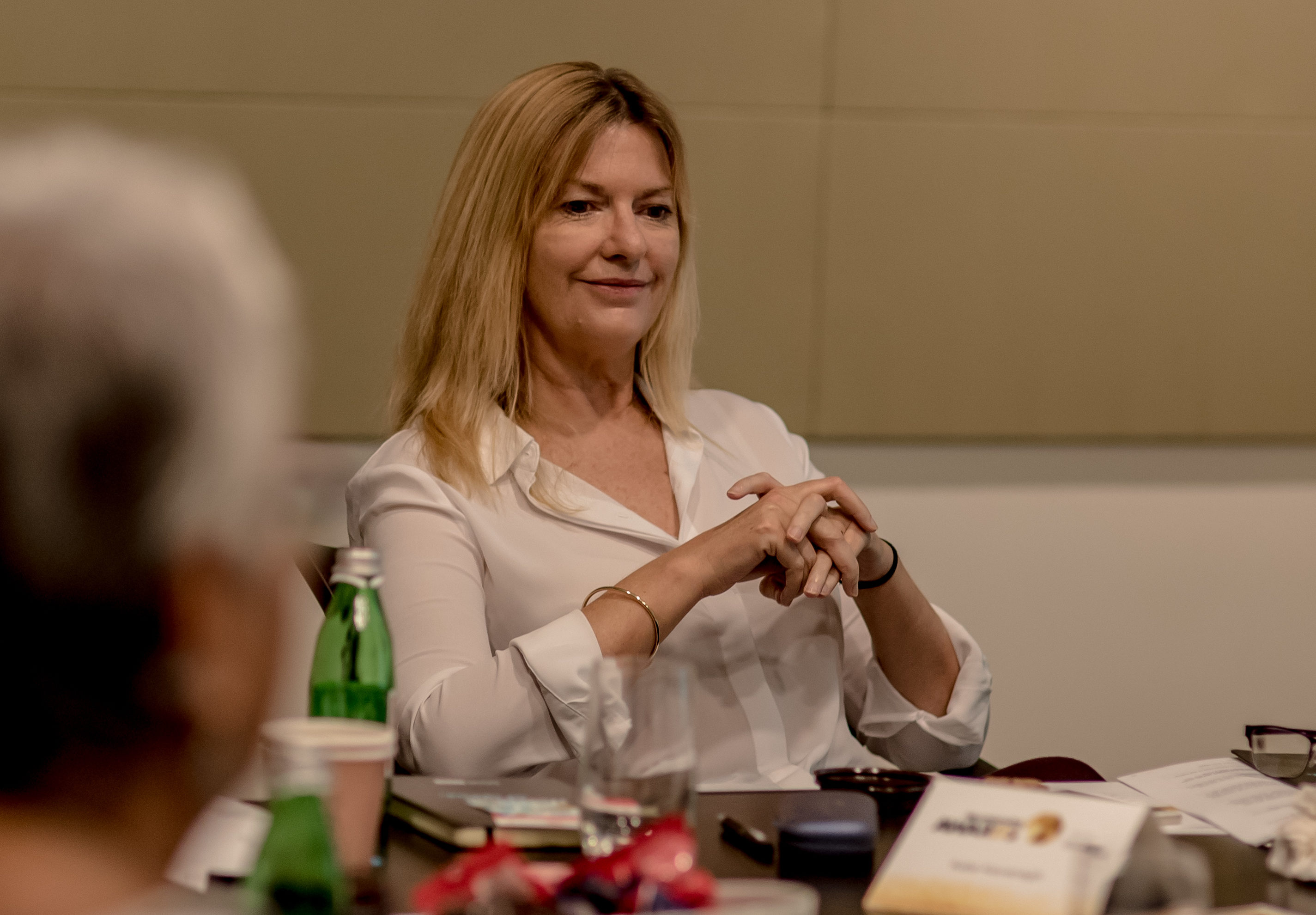Advertisers need to quit funding mainstream media’s promotion of hate speech
Advertisers and audiences need to take decisive action to combat the barrage of hate speech appearing in the mainstream media, argues MediaScope’s Denise Shrivell.
Last Sunday night, Seven in Melbourne ran an ‘exclusive’ news piece covering a meeting with representatives from a far right extremist group, featuring a spokesperson who is known to have expressed neo-nazi views.
The report was a continuation of recent mainstream editorial coverage and divisive political statements expressed in the Australian media.
This far right extremist group gathered to discuss recent issues around reported crime in Victoria – with a particular focus on youth crime within the Australian-African and Sudanese community.
Police and community requests for responsible, fact based commentary, citing impacts to our Australian-African community and concerns on divisions within our broader community were ignored.
The meeting of the far right extremist group came about as a direct result of politicised and misleading statements from several of our politicians and then corresponding inflamed editorial coverage within our mainstream media.
While not the only media organisation covering these issues, Seven has attracted strong condemnation for pushing the views of a neo-nazi into the mainstream through its ‘exclusive’ interview. Critical articles have been published in mainstream and independent media (some of which have published inflamed content themselves), with people on social media, politicians, community leaders and experts also highly critical.
Hey @7NewsMelbourne did you broadcast the expert local opinion of a guy who says Jews are parasites? Good job. Great newsing. Or…maybe…Get your shit together. https://t.co/mJPxieuqZp
— Charlie Pickering (@charliepick) 14 January 2018
This criticism has turned into calls on social media for audiences to boycott Seven and other mainstream media organisations, with grass roots activist movement Sleeping Giants Oz, backed by its growing supporter base, actively alerting marketers and asking them to drop their ad spend.
A look through some of the coverage appearing across the mainstream news cycle is instructional – particularly when considering in early January there were reports ‘African gang crime’ was being specifically “manipulated by our Federal Government to create community fear for political gain”.
Fairfax ran an op-ed from a Sudanese community leader who has since been called out for misrepresenting himself.
 The Herald Sun, who experts say invented the original ‘Apex Gang’, has been running sensational and divisive front pages.
The Herald Sun, who experts say invented the original ‘Apex Gang’, has been running sensational and divisive front pages.
The Daily Mail was directly accused by police of provoking a flare up with youths from the Australian African community.
And over on broadcast media, such as shows like A Current Affair have picked up up these narratives and ran with them.
Sleeping Giants Oz note that as of the 16th January the Australian has run fifteen issues straight denigrating African people in Victoria.
In an article for the Guardian, Jason Wilson noted a broader issue: “The reason Australia has never given birth to a Breitbart-style far right outlet is that there is no niche for them to occupy. The country’s print media market is dominated by outlets whose politics – on immigration, culture wars, and the “war on terror” – are indistinguishable from websites that elsewhere, dwell on the margins.”
In 2017, US commentator Sarah Kendzior highlighted the negative community impact of this type of journalism and the role of politicians and media.
Advertising activist movement Sleeping Giants has taken over 3,000 advertisers off US extreme right site Breitbart. The organisation is now in the Australian market as Sleeping Giants Oz, and is directly targeting “hate speech in the media by stopping its ad dollars”.
They told me: “Sleeping Giants Oz launched 14 August 2017 and took local businesses and the advertising industry by surprise at their lack of awareness of where their ads were appearing.
“In line with our US counterpart we initially focused on Breitbart. Most companies we notified were quick to act and exclude Breitbart. In this short time, 107 Australian-based companies have excluded Breitbart from their ad buy.
“To their credit, we believe the advertising industry in Australia has responded with equal urgency, we are getting fewer reports every week, despite an expanding follower base.
“Our greatest challenge now is convincing companies and the industry that they have the power to influence discourse in the mainstream media space and that Australia has a problem with normative hate speak in our newspapers (print and digital), on our TVs and on the radio.”
In March last year, MediaScope recorded a podcast with the founder of a UK version of Sleeping Giants, Stop Funding Hate, and Sydney-based media academic Jenna Price, where we discussed Stop Funding Hate’s aim of identifying and asking marketers to stop their advertising support of divisive British tabloids. Take a listen here.
Changing media usage habits and the pull of technology platforms such as Facebook and Google are usually blamed for the decline of audience – and revenue – in mainstream media.
But audiences and advertisers intentionally fleeing from mainstream media as a reaction against misleading, biased, partisan, inflammatory journalism and hate speech also requires some recognition.
The responsibility of media and journalism in our community and our democracy – particularly in such a concentrated media ownership landscape – is an issue to be taken seriously.
Denise Shrivell is the founder of MediaScope.








Shouldn’t the target be the media companies themselves rather than the advertisers? Personally Channel 7, 9 and 10 along with the News Corp stable of printed garbage is hardly anything I would consider news worthy. The decline in mainstream media audience should be celebrated and encouraged at all times.
Very well put.
As Sleeping Giant points out, its New Corpse that is the #1 racist media organisation (with the Daily Terra #1 outlet), followed by Seven. All backed up by the playbook from Peter Dutton and Turnbull.
pretty simple, if you don’t like it, change the channel
It’s actually not that simple, ‘The Wasp’. Money is the only motviator for these companies. Changing the channel doesn’t let the channel know WHY you are doing it. Like training a dog, a punishment only works if the punished KNOWS why it’s happening. Hitting them in the hip pocket by targeting advertisers is the only thing they will respond to.
No so simple when you are stood on the train platform with Andrew Bolt on a big screen demanding the Gay community hate the Muslim community more.
Stop your whining. You lefties get way too much undeserved lamestream media coverage as it is.
Anonymous – you mean stop whining about racist media? Really? Why do people want to play the man and not the ball.
My pumpkin spice latte is the bomb!
Wow, when it’s considered left wing to not promote hate speech on the 6pm news, what has this country come to?
Yes, I think we should hand over all editorial news decisions to advertising agencies, who have all been such a force for good in the world over the years. Don’t try and blackmail news organisations with the threat of financial penalties into sharing your political views.
Gentlemen, you are invited to cut your own throats.
What about taxpayers’ funding of hate, via ABC?
I don’t care what commercial stations run, I’m not paying for them.
But given the idiotic comments above, I wouldn’t expect you types to get it.
Was Denise Shrivell in Sydney, or at least in Australia, when the last attempt to intimidate advertisers was made? Five years ago, Destroy the Joint tried to organise an advertiser boycott of the Alan Jones Show. After being publicly humiliated, they declared victory and lapsed into obscurity. Jones continues to reign supreme. Truly is it said, “Those who forget the past are condemned to relive it.”
The media orchestrated this divide. The media , that means you did this. The fraud is great only when it serves you? I am surprisec there isn’t more trouble for so called journalists but its coming.
“I don’t agree with what you say but I will defend to the death your right to say it.” – Evelyn Beatrice Hall
Actually, Voltaire (18th century French dude philosopher and adviser to, et alia, enlightened despots.
I haven’t watched 7 since they put Pauline Hanson on Dancing With the Stars and I know quit a lot of Asian Australians haven’t forgotten about it.
And you wonder why the rest of the world says Australians are racists.
The relentless pushing of this African gangs rubbish is disgusting and just wouldn’t be tolerated in other countries.
As is the way politics has used it as a bashing tool.
Makes me ashamed, it really does.
You must have missed the 300 Sudanese bashing people in St Kilda
http://www.heraldsun.com.au/ne.....cc05b59c2a
You realise the irony of your linking to the Herald Sun?
I find it ironic that people are taking to social media to complain about commercial ‘mainstream’ media. Isn’t it wonderful that people can voice their concerns about whether a news story is racist or not factual when it appears on a nice old fashioned transparent form of media that we can all access, with journo’s and producers and editors and a publisher?
Why should commercial news publishers be held more accountable than a Facebook news feed? Sensationalism sells copies, it gets eyeballs. Let’s fight lies with facts and with better arguments rather than trying to impose a directive on advertisers that sounds like the first injunction of a five year plan…
Because the ‘old school media’ bleats on about how Facebook et al are spreading fake news, when they are spreading and always have been spreading fake news. An algo can be tightened up, by crooked, corporate funded media can’t, it would seem.
It will be very interesting to see whether FB et al do tighten up. Either way, yes we do have the freedoms to rant about this. I bet old Rup’s would love to take that away from us though. Just like he would love us to not have access to the internet, or certainly not a fast one, it would seem. I wonder why that would be……?????
I think the point is as Advertisers & Marketers, we have the choice to allocate our budgets where we choose to. If you don’t like it, we all have the option to allocate our media budgets elsewhere.
Personally I dont have the influence in my business to take a stand like this, but I can and do advocate. Our business has taken an ethical stance on media buying before, I am sure we can in the future as well.